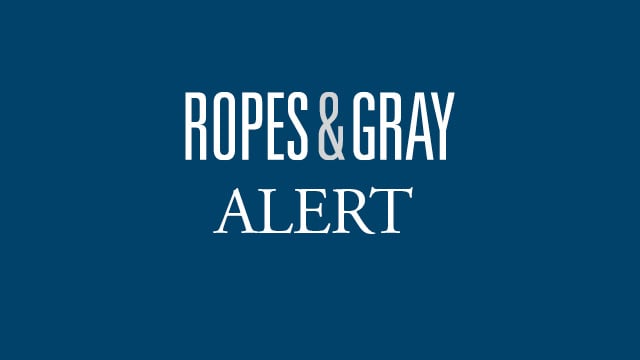On June 30, the U.S. Supreme Court agreed to hear a case that will determine whether Section 47(b) of the Investment Company Act of 1940 (ICA) creates a private right of action for shareholders of registered investment companies to bring lawsuits for alleged violations of the statute. The Second Circuit Court of Appeals has recognized such a right of action since 2019, opening a back door to litigation claims by private plaintiffs for alleged ICA violations, despite Congress having granted the Securities and Exchange Commission (SEC) sole regulatory authority to enforce the ICA. Other circuit courts of appeal have rejected a Section 47(b) private right of action. This week, the Supreme Court granted certiorari in FS Credit Opportunities Corp. v. Saba Capital Master Fund, Ltd. to resolve the circuit split. The outcome of the appeal, to be heard in the Court’s October 2025 term, will have broad implications for registered funds governed by the ICA (including mutual funds, exchange-traded funds (ETFs) and closed-end funds), as the litigation door opened by the Second Circuit risks upending the long-established regulatory structure that is the fund industry’s bedrock.
In the ICA, Congress granted fund shareholders a single express private right of action to bring lawsuits – namely, a claim for allegedly excessive advisory fees under Section 36(b), which was added to the statute by amendment in 1970. Applying key Supreme Court precedent from 2000, lower courts have uniformly declined to read into the statutory language implied private rights of action to enforce other ICA provisions. The sole outlier was the Second Circuit’s 2019 decision in Oxford University Bank v. Lansuppe Feeder, LLC, recognizing an implied private right of action under Section 47(b). This provision states that a contract “whose performance involves … a violation of” the ICA cannot be enforced by any party to the contract. The Second Circuit panel concluded in Oxford University Bank that this language implied Congress’ intent to provide a private right of action to sue for “rescission” of a contract involving an alleged violation of another provision of the ICA.
Since Oxford University Bank, so-called “activist” investors like hedge fund manager Saba Capital have repeatedly seized upon Section 47(b) as an entry point to challenge closed-end fund by-laws as violating other provisions of the ICA regarding fund capital structure and board elections. These litigations have been in support of Saba’s closed-end fund “arbitrage strategy” seeking to dismantle such funds to obtain short-term profits at the expense of other shareholders. Tellingly, the SEC has not taken any enforcement action to challenge the bylaws in question as violating the ICA.
But the back door threat posed by a Section 47(b) private right of action extends well beyond the closed-end fund “activist” strategy, as explained in an amicus brief submitted to the Supreme Court by the Investment Company Institute (ICI) and the Asset Management Group of the Securities Industry and Financial Markets Association (SIFMA AMG) in support of Supreme Court review. Because fund management and operations are nearly always fully externalized, virtually every task involved in managing a fund and distributing its shares is undertaken by the fund’s investment adviser or other service providers pursuant to a written agreement with the fund in exchange for a fee. If fund shareholders can assert litigation claims for “rescission” of such service agreements based on alleged violations of other ICA provisions in the “performance” of the contracts (regardless of whether the SEC believes the ICA was violated), the potential litigation theories contrived by the private plaintiffs’ bar are almost limitless in scope.
The consequences of a potential flood of litigation claims by the plaintiffs’ bar via Section 47(b) go beyond wasteful litigation expense. The registered fund industry relies heavily on the stable regulatory framework established through the SEC’s decades of rulemaking, exemptive orders, no-action letters and other guidance. Private litigation claims, in which courts would not necessarily be bound by the SEC’s interpretation of the statute, could risk contradictory interpretation and significant regulatory uncertainty, dampening industry innovations and ultimately harming shareholders. The Supreme Court’s decision in FS Credit Opportunities Corp. could have a significant impact on all facets of the registered fund industry and bears close attention.
Ropes & Gray litigators represented ICI and SIFMA AMG in connection with their amicus brief to the Supreme Court.
